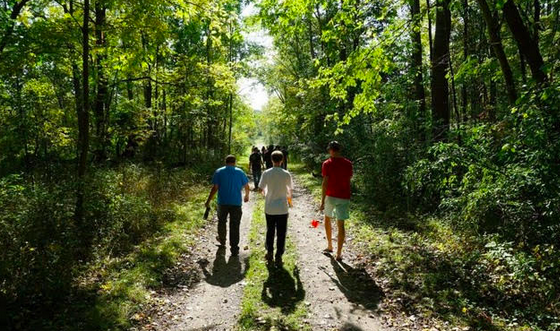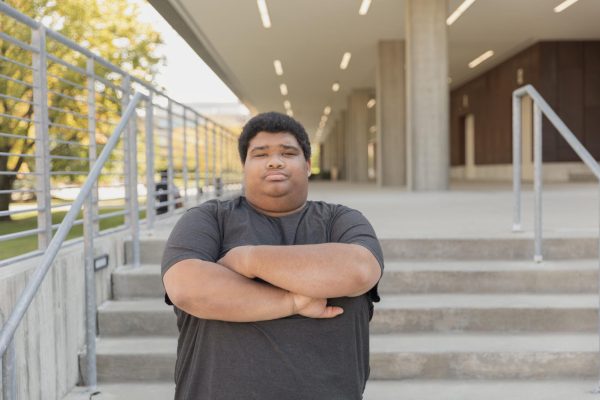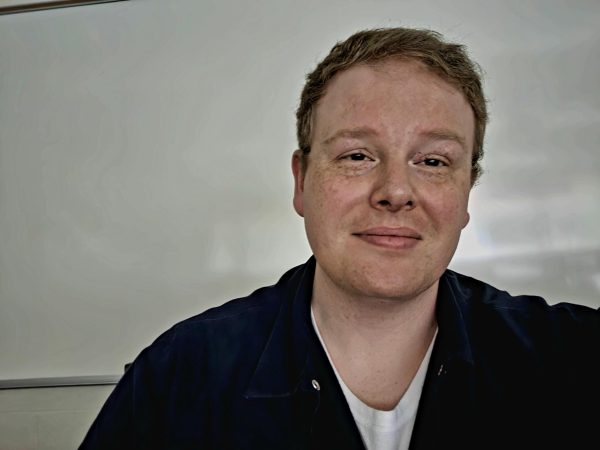Letter to the editor: The Wrong Project for the Wrong Time

The Wrong Project for the Wrong Time
Over the past several weeks, we the Steering Committee of the Campus Alliance for Sustainability and the Environment (CASE-OU), have been learning more about the proposed development for the East Side of campus. After meetings, a careful review of available plans and documents, and a discussion of the proposal among ourselves and our constituents, we have concluded that this is the wrong project for the wrong time. We would like to articulate to the campus community the reasons for our strong and unequivocal opposition to mixed-use development of that section of campus:
- The project is philosophically at odds with Oakland University’s Healthy Planet Initiative and commitment to sustainability. Fundamental to our conception of sustainability is cultivating a different kind of relationship with the natural world, including a rejection of the notion that land (including campus space) exists simply to be used, that it is merely a “dead asset” or “stagnant resource” unless “leveraged” or “utilized” for economic gain. This is precisely the kind of thinking that has produced the climate crisis we’re currently facing and that has given rise to sustainability mandates in the first place. If Oakland University is serious—as the sustainability working group’s mission states—about “encouraging sustainable relationships, cultivating renewable habits, and working to generate ecological values that reflect our responsibility for engendering a more just and habitable world,” we must move swiftly away from the kind of economic development mindset that underpins the East Campus plan. Short-term (financial gain) considerations must give way to long-term visionary thinking that takes seriously the climate emergency and the call to withdraw from more of such energy- and resource-intensive development projects (see https://scientistrebellion.com/ ).
- The proposed development will cause environmental harm to the East Campus. The removal of a large plot of deciduous forest will result in lost habitats for wildlife, including migratory birds. Additionally, the impervious surfaces that will result from the proposed development will generate stormwater runoff and further degrade Galloway Creek, and exacerbate the already-significant heat island effects already present in Auburn Hills and Rochester.
- This development does not advance the university’s academic mission or serve student needs. Oakland University is, first and foremost, an educational institution, not a business enterprise. Nothing about the proposed plan appears designed to enhance or improve academic life (teaching and learning, research and the production of knowledge) except for the vague promise of future revenue. How will this development enhance students’ classroom experiences? Improve faculty morale? Support or enable faculty and student research? Solve the problem of scarce classroom space? Increase retention rates? Help students from underserved populations afford tuition and housing?
- Finally, there are important aesthetic problems with this project. Oakland University is fortunate to occupy a scenic property, whose beauty meant a great deal to Matilda Wilson. For too long now, the university has been slowly destroying that beauty with parking lots and capital investments of dubious value to the academic mission of the university, like the golf courses. Yet there is tremendous aesthetic and educational value in the campus’ natural spaces, which the university has been promoting recently with its “Living Classroom” campaign. Now is the time to invest in the protection and preservation of these spaces, not to destroy them. The corner of Walton and Adams is already besotted with traffic, parking lots, and retail establishments (many of them barely hanging on). The East Campus green space is a refuge against further suburban sprawl. How does yet more cookie-cutter commercial encroachment on campus property align with Matilda Wilson’s vision for the university or, for that matter, with a vision for a sustainable campus and a sustainable future?
We recognize that these are difficult times for public institutions of higher education. Solving those problems is going to require commitment and creative thinking. But we also believe strongly that we should be guided first and foremost by our values and our belief in the academic and social mission of the university. The plan as proposed does not appear to be guided by genuine commitments to those values or to a sustainable world. Nor is it an example of creative thinking; to the contrary, it is business as usual (and a university is not a business!). We believe that Oakland has an opportunity to become a regional leader in sustainable practices in higher education, but we won’t get there as long as we perpetuate unsustainable practices driven by fantasies of unending growth and development, rather than dedicating ourselves to creating lasting and ethical relationships with one another and the spaces we inhabit.
For all of these reasons, we are urging President Pescovitz and the Board of Trustees to abandon these plans and initiate instead a campus-wide conversation about alternative ideas for East Campus or for reinvesting in the academic mission and life of Oakland, ideas rooted in values of justice, care, and a commitment to developing genuinely sustainable relations with the nonhuman world.
The CASE-OU Steering Committee:
Alan Epstein, PhD, Special Instructor, Political Science
Jeffrey Insko, PhD, Professor of English
Laura Landolt, PhD, Associate Professor, Political Science
Shannan McNair, PhD, Associate Professor, Human Development and Child Studies
Lily Mendoza, PhD, Professor, Culture & Communication
Jane O’Neil, Community Member and OU Alumna
James W. Perkinson, PhD, Professor, Social Ethics, Ecumenical Seminary & OU Adjunct Faculty
Mozhgon Rajaee, PhD, Assistant Professor, Public Health
Scott Tiegs, PhD, Professor, Biological Sciences
Steph Wong, Undergraduate, Creative Writing and General Anthropology






Anon • Jun 18, 2022 at 10:29 PM
I ‘d like to add…
1. I have made use of the natural resources of the campus to teach laboratory activities. The natural campus is a part of the educational experience.
2. The biology and environmental science programs are better able to recruit new faculty with a natural campus. A paved over campus offers no opportunity for research or course development and so it causes potentially excellent faculty to look elsewhere for employment.
And, I know this will sound silly and insignificant, but…
I once met a very special person in my life at OU. We would go for a run each week, enjoying the natural campus. The tree where we met for years has since been cut down. A building now stands where we would see the deer raising their fawns. The places associated with some of my fondest memories are essentially gone.
Students form memories on our campus, they develop an attachment to the university. That is how they become the kind of ALUMNI who will CONTRIBUTE MONEY to the university. Bulldozing all of the places they associate with their fond memories will cost us a great deal in the long run.
But I know my opinion doesn’t matter, because this Board of Trustees has shown time and again that they are not seeking input.
One thing I hope my students understand before they graduate: Meetings are not where decisions are made. Once and idea or policy has been “suggested” and is widely known, that means the decision has already been made. The purpose of a meeting is to get everyone to accept it. Hearing people out is merely done for the sake of appearance, but is never seriously listened to.
Yousef • Jun 15, 2022 at 1:47 PM
1. the University (admins) likely doesnt care at all about the healthy planet initiative. it is likely only a virtue signal to be in line with the most trendy and current thing. Also the earth was given under mans dominion as stewards of it. it IS an asset that exists for no other purpose other than to serve man. The belief that nature is somehow mystically is above man is just neo-paganism.
2. Again OU admins dont care about secondary side effects. They are held to account on dollar sings and rankings of the university for the most part.
3.See above
4. Our president was a former hospital admin. She made her living screwing over grandma with 50 dollar Tylenols tablets (i have been charged 25 for an aspirin in the ICU, no joke.) do you think she cares about some “green space” nonsense? think about who is steering the helm here. Someone who told us to shut up and be grateful thanks giving while touting her multi million dollar mansion-pad.
5. The OU admins are looking down the barrel of decreased college enrollment. If i were them i would be shaking in my boots and trying to leverage every asset i could as well. Remember these people come from the private world where the goal is profit growth and ever growing and expanding your services and goods sold. they dont care about the legacy Ms Wilson left them.
Annette Gilson • Jun 15, 2022 at 10:30 AM
What a brilliant letter. Thank you for laying out the flaws to the plan, and reminding us of our mission as a university. Great work!
Robert Anderson • Jun 15, 2022 at 9:44 AM
This is wise. I applaud the steering committee’s timely call for responsible thinking. Let’s be a university and focus on what we do, not follow some fantasy of easy money.
anon • Jun 15, 2022 at 5:36 PM
These narcissistic “leaders” care only about easy money and self-aggrandizement. Expecting them to do anything else is delusional. Reasoning with them is as effective as negotiating with Putin.